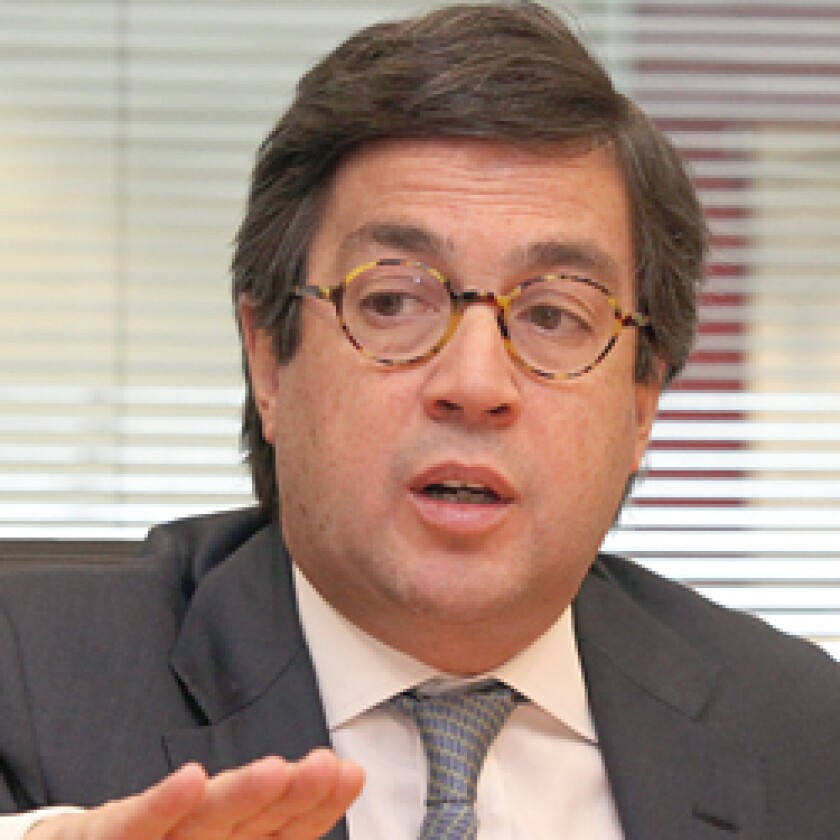IDB officials open the annual meetings in Calgary this weekend facing pressure from US Republicans to cut funding, and an internal dispute about the evaluation of projects.
Bank president Luis Alberto Moreno told Emerging Markets in an interview that the capital increase approved at last year’s meetings has to be approved by member countries by October 31 this year, otherwise lending would have to be cut sharply.
“We came away from [last year’s meetings at] Cancun with a very strong mandate, and I truly believe the shareholders’ support is there”, he said. “Of course you have to go to the congresses.
“The bottom line is, if this [approval] were not to happen, we would have to reduce our lending to about half of what we have today.”
Julie Katzman, executive vice president at the Bank, declined to comment on the likelihood of Congress approving the IDB’s capital increase but noted: “Treasury Secretary [Tim] Geithner has made it a big priority of his that our and other [multilateral] increases are approved. He has said he’s confident the increase will go through.”
The threat to the bank’s funding is strongest in the US, where President Barack Obama and Treasury Secretary Geithner have been at odds with Republican lawmakers who want to slash US funding for all multilateral development banks.
While the Obama administration is pointing to the IDB’s importance in the Haiti relief effort, the bank’s own internal oversight body has raised questions about management’s failure to fulfill commitments made when the capital increase was granted and on project quality.
A study of the bank’s projects in 2009 by its Office of Evaluation and Supervision (OVE) found that 88% of them did not have sufficient evaluability, i.e. were not designed in such a way that their outcomes could be properly evaluated.
Critics argue that the OVE report contradicts the management’s own 2010 Development Effectiveness Overview, which claims that project design quality has improved in recent years.
“In direct contrast to IDB management claims, the OVE evaluation found the actual evaluability of projects has deteriorated markedly, when measured using a consistent methodology,” the Washington-based Bank Information Centre (BIC) said in a statement.
The OVE evaluated bank projects in 2001, 2005 and 2009. Its 2005 review found that project evaluability was weak, and management undertook a full-scale review of the way that it checks up on projects.
But despite this, “OVE found that in 2009, project evaluability at the IDB had deteriorated even further than already low 2005 levels”, the BIC said. “For OVE, the underlying issue is whether project teams recognise the need to specify a problem to be solved or how the project represents the best option to solving the problem.”
IDB spokesman Pablo Bachelet told Emerging Markets that the management intended to work with the OVE over the coming year “to narrow gaps on how evaluability is measured”. Management has “made progress already, by agreeing with OVE on several important adjustements to our evaluability measures”. These were agreed by the board in February.
Bachelet added that “management disagrees with methodological aspects of the [OVE] review and we have expressed our view in our formal answer to the report”.
Luis Estanislao, the IDB general manager of strategic planning and development effectiveness, told Emerging Markets: “Our methodology emphasized a quantitative list of checks. We have now agreed with the OVE to include a qualitative note on each project, in addition to our quantitative check-list. That’s the most important change.”
Differences remain over how to measure evaluability of projects without sovereign guarantees, Estanislao added.
